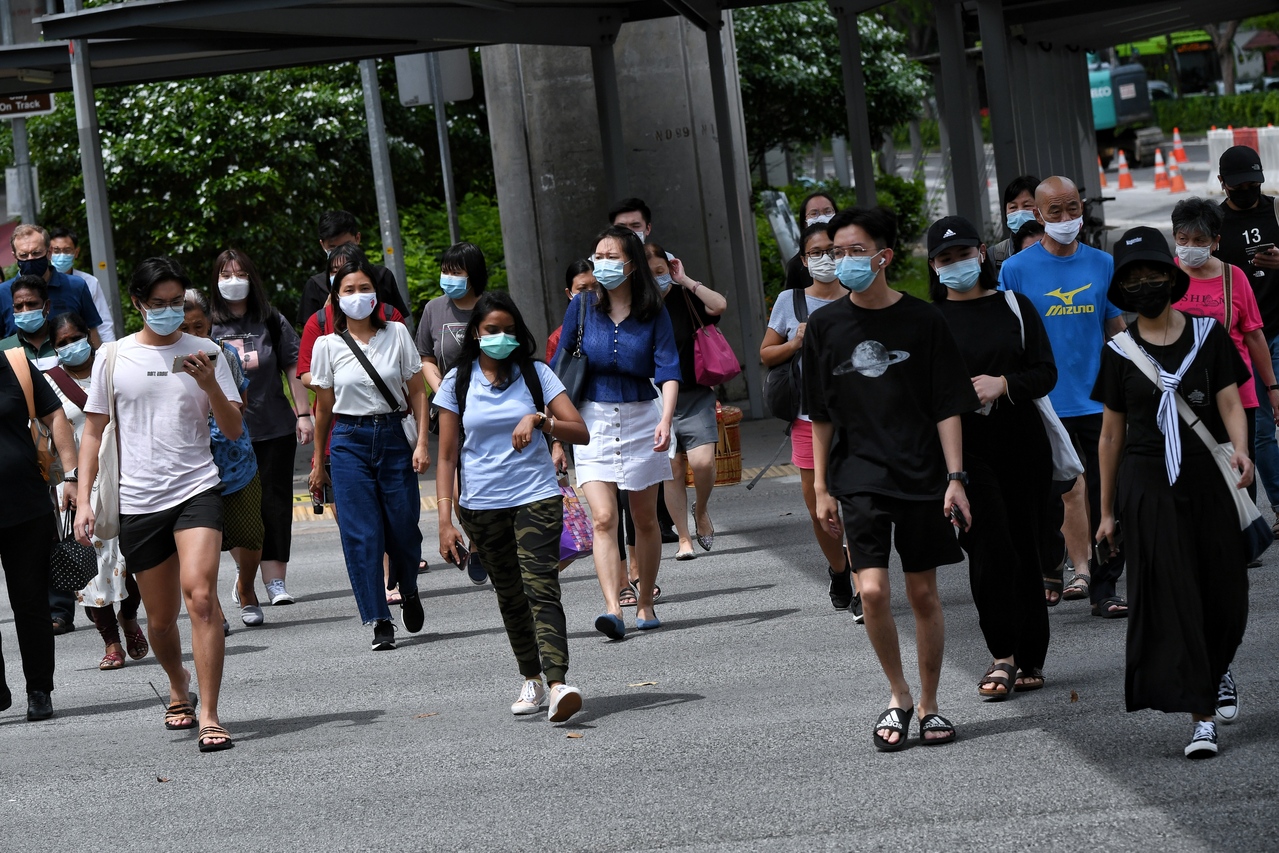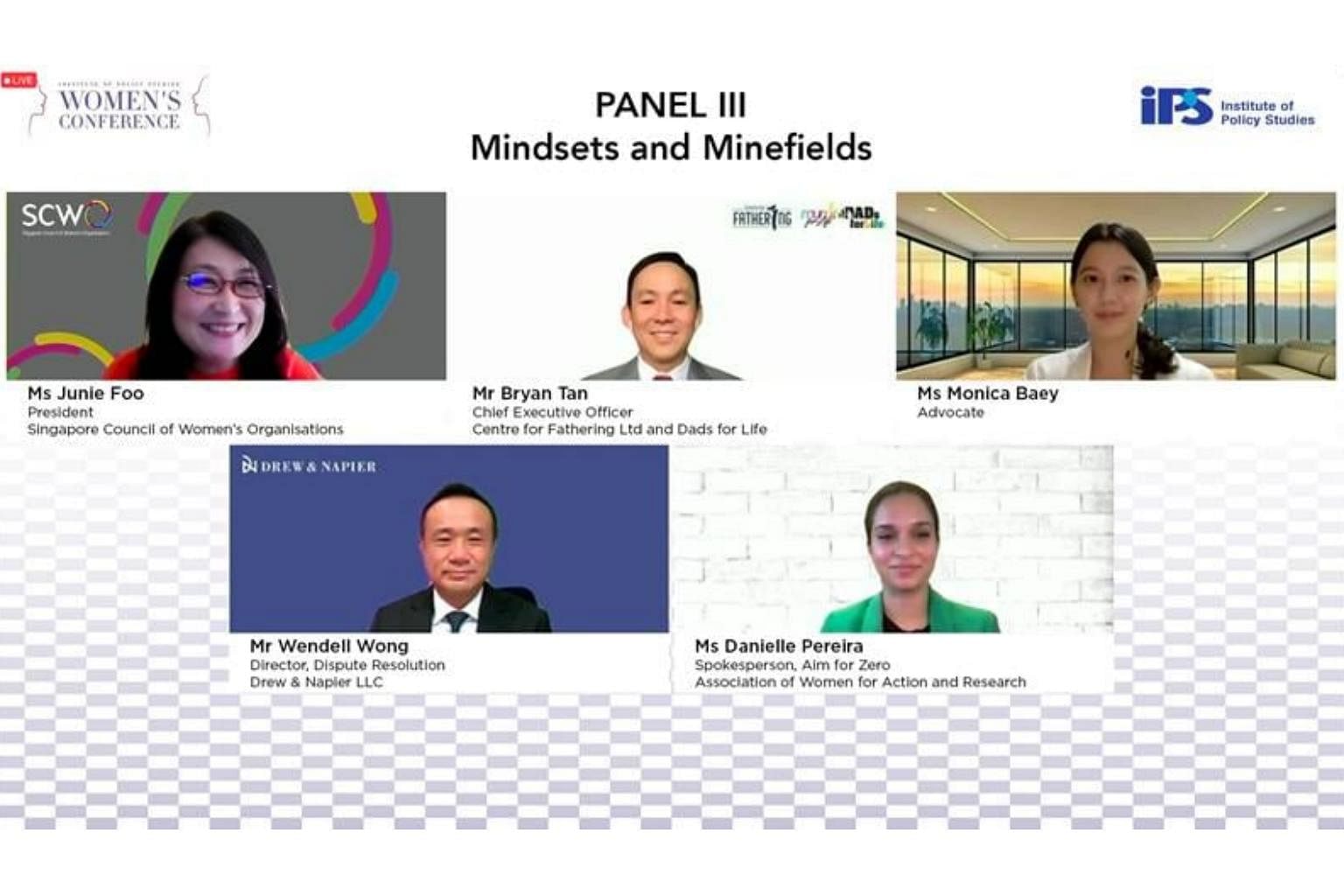Both legislation and mindset shifts needed to counter toxic masculinity: IPS panel
Sign up now: Get ST's newsletters delivered to your inbox

Changes to the law alone will not solve the underlying problem of misogyny in society.
ST PHOTO: KUA CHEE SIONG
SINGAPORE - The solution to the problem of "toxic masculinity" lies in a combination of legislative changes and cultural mindset shifts, said panellists at the Institute of Policy Studies Women's Conference on Thursday (June 3).
Toxic masculinity refers to the negative effects of social pressures on men to behave in "manly" ways, which can manifest as harmful attitudes, speech and violence.
Mr Wendell Wong, director of dispute resolution and co-head of investigations and criminal law practice at the law firm Drew & Napier, noted the need for legislation to respond to changes in how technology is used as the "weapon of choice" in sexual harassment.
Ms Danielle Pereira, a lawyer and spokesman for the Aim for Zero campaign at the Association of Women for Action and Research (Aware), said legislation is needed to define workplace harassment and hold employers responsible if they fail to address it properly.
But changes to the law alone will not solve the underlying problem of misogyny in society, both panellists noted.
Mr Wong said advocacy and education are key, while Ms Pereira cited the need for efforts to change attitudes and long-held beliefs in workplaces.
Also on the panel were Ms Monica Baey, an advocate for sexual violence survivors who started a national discussion on sexual harassment after going public with her experience as a target of voyeurism as an undergraduate, and Mr Bryan Tan, chief executive of the Centre for Fathering and the Dads for Life movement.
Ms Junie Foo, president of the Singapore Council of Women's Organisations, moderated the discussion on the topic of "mindsets and minefields".
Ms Baey noted that the prevalence of victim blaming is a significant barrier that can discourage survivors from speaking up, while a lack of awareness and familiarity with sexual assault can hinder bystanders from stepping in to help victims of such crimes.
She said the work to change perceptions and lower the incidence of sexual assaults needs to be rooted in governments, institutions and policies, but individual efforts to change perception and attitudes also count.

On the notion of toxic masculinity, Mr Tan said traits perceived as masculine, like strength, aggressiveness, stoicism and independence, resonate with many men, but he noted some men also struggle to live up to such expectations and may suffer in silence due to a lack of social support.
"I have to confess that I couldn't resonate with the term 'toxic', and I know this is true for many men, because what is described (as toxic) is so much a part of who we are as men," he said.
However, Mr Tan also said men should not trivialise the aspects of their masculinity that may be harmful to others, such as over-sexualising women.
The panellists also discussed how toxic masculinity can be perpetuated in predominantly male institutions like national service (NS).
Referring to Aware chief Corinna Lim's recent call to review aspects of NS and make it more inclusive to enable the equal participation of women, Mr Wong said this may not address the underlying causes, as sexual harassment and offences still occur in armed forces in other countries where both men and women serve.
Instead, efforts to shift attitudes should start at the top, he said, by having leaders ensure that toxic masculinity does not dominate training and bonding activities.
Ms Pereira agreed that change needs to happen at the top. She cited research by Aware that showed how "locker room talk", or speaking about women's bodies in an objectifying manner during NS, can contribute to harmful attitudes about women.
While such talk can be seen as harmless, older leaders engaging in locker room talk can influence younger servicemen, who later go on to perpetuate the same views among those who are newly enlisted, Ms Pereira said.
Mr Tan, who was a senior officer in the Singapore Armed Forces for over two decades, said behaviours that could be described as "toxic leadership" should be reviewed.
"It's all about leadership. It's hierarchical. It's how the leaders at every level lead their men and women, and make sure that everything is done with the right purpose in mind."


